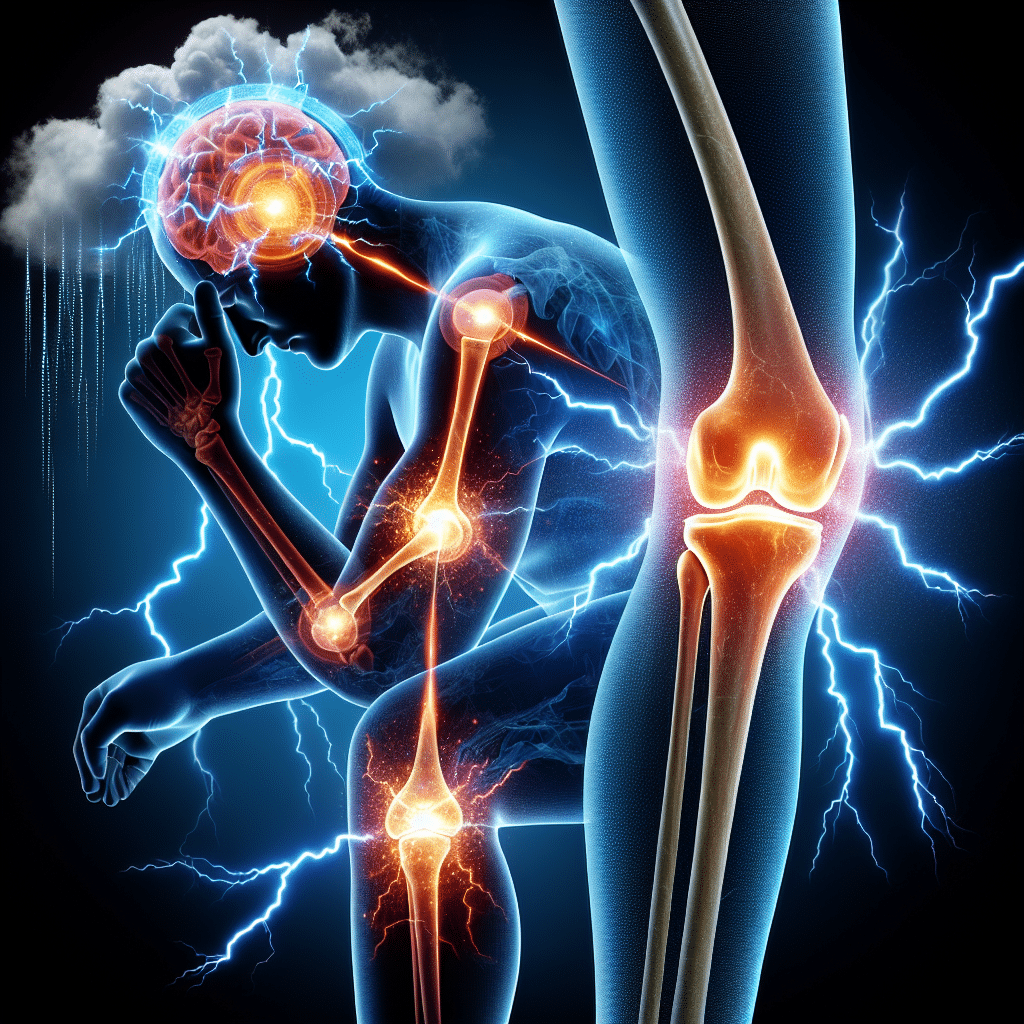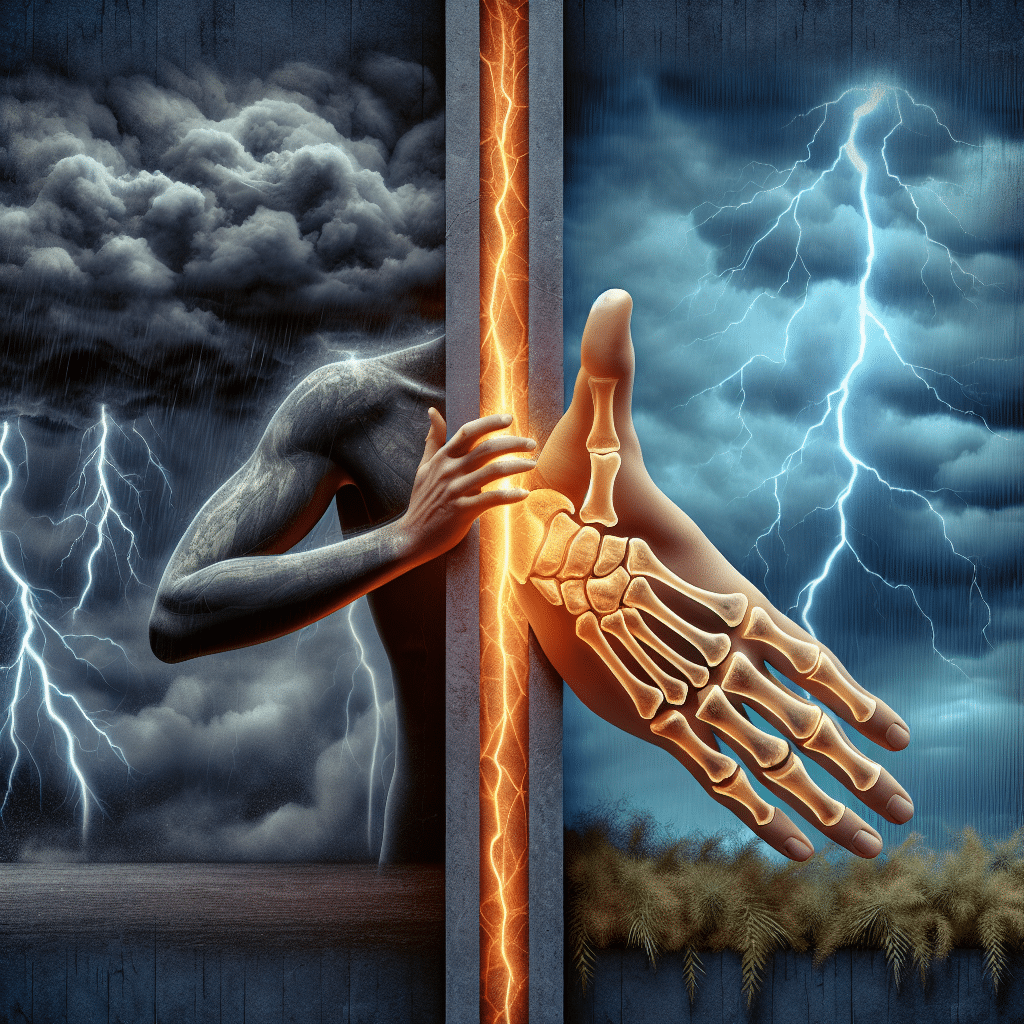Do you ever experience those achy and uncomfortable joints that seem to flare up during stressful periods? You’re not alone. It turns out that the effects of stress extend far beyond just mental tension, as recent studies have revealed a surprising connection between stress and joint pain. While it may seem like an unlikely partnership, the impact of stress on our bodies goes beyond just a racing mind, often manifesting in physical ways. So, the next time you find yourself overwhelmed and your joints start acting up, remember that there may be more to it than meets the eye.

Understanding Joint Pain and Stress
Joint pain refers to discomfort, aches, or soreness in the joints of your body. These include the knees, hips, shoulders, and wrists, among others. On the other hand, stress is a physical or psychological response to demands or pressures, causing emotional or mental strain. The relationship between joint pain and stress is something that many people may not be aware of.
Common Types of Joint Pain
There are various types of joint pain, each having its unique characteristics. Osteoarthritis, commonly known as wear-and-tear arthritis, occurs when the protective cartilage that cushions the ends of your bones wears down over time. Rheumatoid arthritis, on the other hand, is an autoimmune disorder where the body’s immune system mistakenly attacks the joints, causing inflammation and pain. Lastly, fibromyalgia is a chronic condition characterized by widespread musculoskeletal pain, fatigue, and tenderness in specific areas of the body.
How Stress Impacts Joint Health
Stress can significantly impact joint health in various ways. One of the primary mechanisms is through inflammation. When you experience stress, your body releases certain chemicals that trigger inflammation. Prolonged inflammation can damage the joints and contribute to chronic joint pain. Additionally, stress can increase the production of cortisol, a hormone known for its anti-inflammatory properties. However, excessive cortisol levels can lead to joint pain by weakening connective tissues and reducing the body’s ability to repair itself. Furthermore, stress often leads to muscle tension, which can put extra strain on the joints and exacerbate pain.
Psychological Factors Contributing to Joint Pain
Psychological factors play a crucial role in the experience of joint pain. Stress-induced hypervigilance is one such factor. When you are stressed, your body goes into a heightened state of alertness, leading to increased pain sensitivity. Anxiety is another psychological factor that can contribute to joint pain. Anxiety can cause muscle tension and stiffness, leading to joint discomfort. Moreover, negative emotions such as sadness, anger, and frustration can intensify the perception of pain, making joint pain feel more severe and bothersome.

The Mind-Body Connection
The mind-body connection plays an integral role in the experience of joint pain. Stress can influence your perception of pain. When you are stressed, your brain becomes hyper-focused on the pain signals, amplifying the sensation of joint pain. Additionally, stress affects the central nervous system, which plays a vital role in pain modulation. Imbalances in the central nervous system can enhance pain sensitivity and make joint pain more intense. Moreover, stressful situations can manifest as various psychosomatic symptoms, such as headaches, muscle aches, and joint discomfort.
Managing Stress to Alleviate Joint Pain
Effectively managing stress can go a long way in alleviating joint pain. Engaging in stress management techniques, such as deep breathing exercises, meditation, and progressive muscle relaxation, can help reduce stress levels and alleviate joint discomfort. Regular exercise is also beneficial for joint health. Physical activity helps release endorphins, which are natural pain relievers, and strengthens the muscles surrounding the joints, providing better support and stability. Additionally, incorporating relaxation techniques like taking warm baths or practicing mindfulness can contribute to a calmer mind and a healthier body.

Workplace Stress and Joint Pain
Many people spend the majority of their day at work, making it essential to address workplace stress as it can have a significant impact on joint health. Ergonomics plays a crucial role in promoting joint health in the workplace. Ensuring proper workstation setup, including an ergonomic chair and desk, can reduce excessive strain on the joints and help alleviate joint pain. Implementing stress management strategies in the workplace, such as encouraging breaks, providing access to stress reduction resources, and fostering a supportive work environment, can also help employees effectively manage stress and reduce the risk of joint pain.
The Impact of Lifestyle on Joint Pain
Lifestyle factors can significantly influence joint pain and overall joint health. A balanced diet rich in anti-inflammatory foods, such as fruits, vegetables, and omega-3 fatty acids, can help reduce inflammation and alleviate joint pain. Adequate sleep is also crucial for joint health as it allows the body to repair and restore itself. Chronic lack of sleep can increase pain sensitivity and exacerbate joint discomfort. Furthermore, smoking has been linked to an increased risk of joint pain and inflammation. Quitting smoking can not only improve overall health but also reduce joint pain and stiffness.
Seeking Professional Help for Joint Pain and Stress
If you are experiencing persistent joint pain and stress, it is essential to consult a healthcare provider. They can evaluate your symptoms, assess your joint health, and provide an accurate diagnosis. Depending on the underlying cause of your joint pain, treatment options may include medications, physical therapy, or surgery. Additionally, healthcare providers can recommend various therapies to help manage stress, such as cognitive-behavioral therapy, relaxation techniques, and stress reduction programs. Seeking professional help is crucial in managing joint pain and stress effectively.
Holistic Approaches to Joint Pain and Stress
In addition to traditional medical treatments, holistic approaches can play a significant role in managing joint pain and stress. Acupuncture, an ancient Chinese practice, involves inserting thin needles into specific points on the body to promote pain relief and balance energy flow. Massage therapy is another effective holistic approach that can help relieve muscle tension, reduce stress, and alleviate joint pain. Finally, practicing yoga and mindfulness can improve joint flexibility, reduce stress levels, and enhance overall physical and mental well-being.
Understanding the relationship between joint pain and stress is essential for effective management of both conditions. By implementing stress management techniques, adopting a healthy lifestyle, and seeking professional help when needed, you can alleviate joint pain and reduce the impact of stress on your body. Remember to prioritize your well-being and take the necessary steps to protect your joint health.